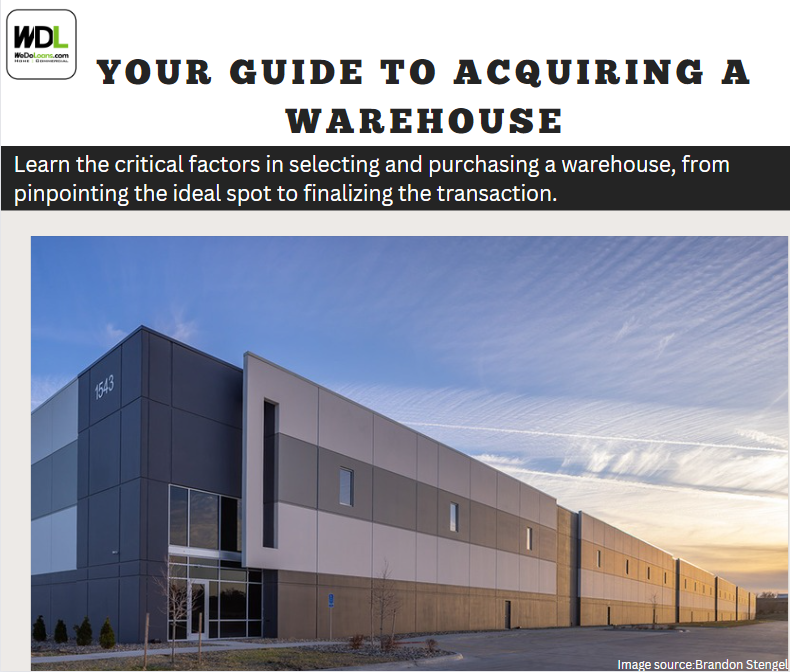
The shifting trends towards online consumerism have markedly increased the need for strategic, well-positioned warehouse space. This surge in demand presents a pivotal opportunity for investors in the commercial real estate market. The crucial task is to evaluate the profit potential of warehouse investments within this dynamic sector.
Defining Warehouse Property
A warehouse property is a blend of land, buildings, and other physical infrastructures purposed for the storage and distribution of goods. Typically falling under the umbrella of commercial real estate, these properties serve as hubs for inventory storage, logistical operations, truck loading, and unloading activities. Industrial warehouses, by extension, often handle the storage of raw materials for sectors like manufacturing or construction.
Exploring Warehouse Property Types
The investment landscape for warehouse properties is diverse, with each type catering to different market demands and cost structures. Investors must weigh these variations carefully:
- E-commerce fulfillment centers
- General storage warehouses
- Technologically equipped automated warehouses
- Public storage facilities
- Tech-focused warehouses for specialized storage
- Mixed-use ‘flex’ spaces combining offices and storage
- Climate-controlled facilities for sensitive products
- Foodservice-specific warehouses with regulated standards
- Operations-focused warehouses for packaging and distribution
- Consumer-directed self-storage units
- Specialized storage for raw materials in construction and manufacturing
Also, it’s pertinent to consider the property’s classification—ranging from Class B to D—which can impact its use and renovation potential.
The Case for Warehouse Investment
Warehouses present an appealing investment opportunity for those seeking a relatively passive income stream. Key benefits include:
- Sustained Demand: Warehouses, especially in strategic locations, are likely to retain their value and demand due to the steady growth of e-commerce.
- Profitability Scale: The expansive nature of warehouses allows for larger rental incomes based on square footage.
- Market Stability: Warehouse leases are often less susceptible to economic downturns, providing more predictable revenue streams.
- Favorable Lease Terms: Many warehouses operate under triple net leases, shifting the responsibility of maintenance and associated costs to the tenant.
Yet, investors should also be wary of potential pitfalls, such as the risks associated with tenant vacancy, the challenges of single-tenant dependency, and the need for modernization to meet evolving demands.
Financial Considerations for Warehouse Setup
Investment costs in warehouses vary widely based on type, age, and location. Standard setup expenses range from $55 to $70 per square foot, excluding land acquisition and site preparation. Prices may dip to $20 per square foot for simpler setups.
Critical Factors in Warehouse Purchase
To make an informed decision, consider these key points:
- Return on Investment: Warehouses can yield substantial returns, particularly in locations with high demand.
- Strategic Positioning: Proximity to urban centers and transport networks can significantly enhance a warehouse’s value.
- Lease Structures: Opt for lease agreements that align with your investment goals, with triple net leases being a common choice.
- Market Entry: Avoid overpaying to prevent long-term financial strain. Entering the market at a fair price point is crucial.
- Construction vs. Acquisition: Evaluate whether building anew or purchasing an existing warehouse suits your strategy best.
- Amenity Impact: Features such as parking, loading docks, and modern utilities can elevate the property’s appeal and profitability.
Valuing a Warehouse Investment
A meticulous evaluation process is vital. Consider these methods:
- Cost Approach: Estimates the value based on reconstruction costs and depreciation.
- Income Approach: Focuses on potential earnings and net operating income, offering a present-day valuation based on future income streams.
- Market Approach: Draws comparisons with recent sales of comparable properties to ascertain value.
The Verdict on Warehouse Investments
Warehouses can be a wise investment, particularly in regions with burgeoning demand. The sector’s robustness hinges on factors like tenant longevity, lower construction costs, and swift build times.
Final Thoughts
For those attuned to the uptick in e-commerce, investing in a warehouse can be a smart move. With the right location, contemporary design, and operational efficiency, warehouse properties stand as attractive prospects for today’s discerning investors.
